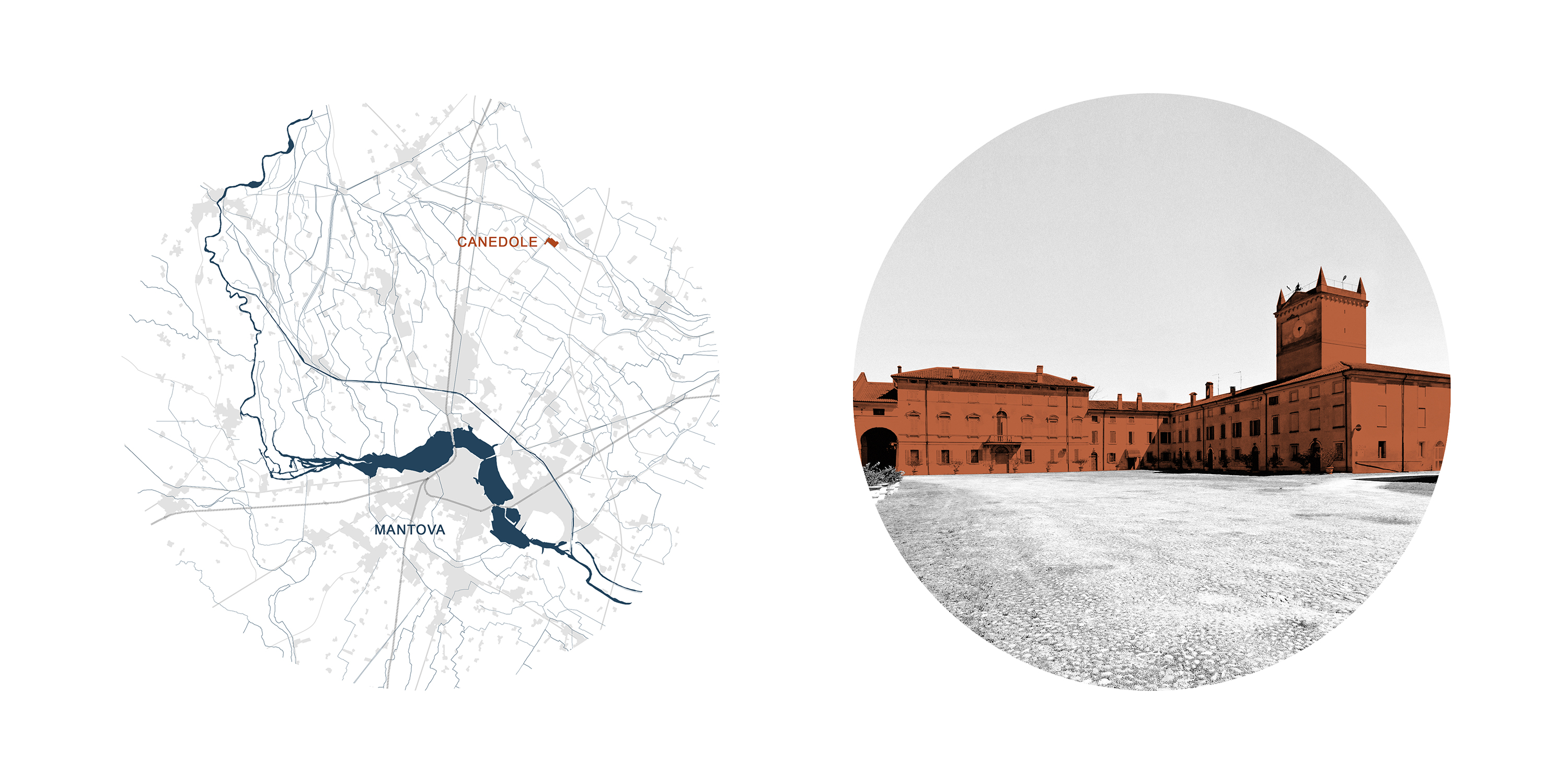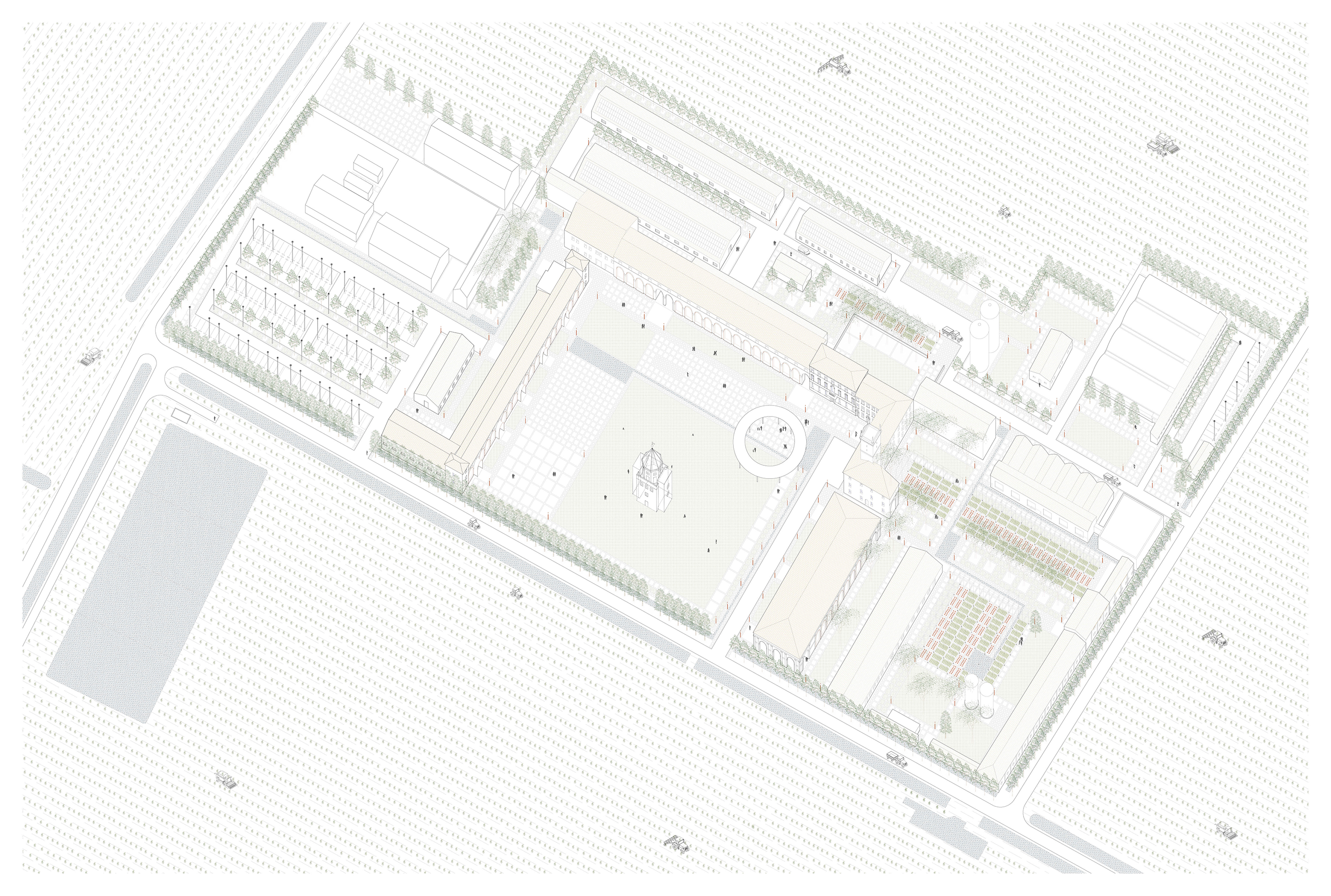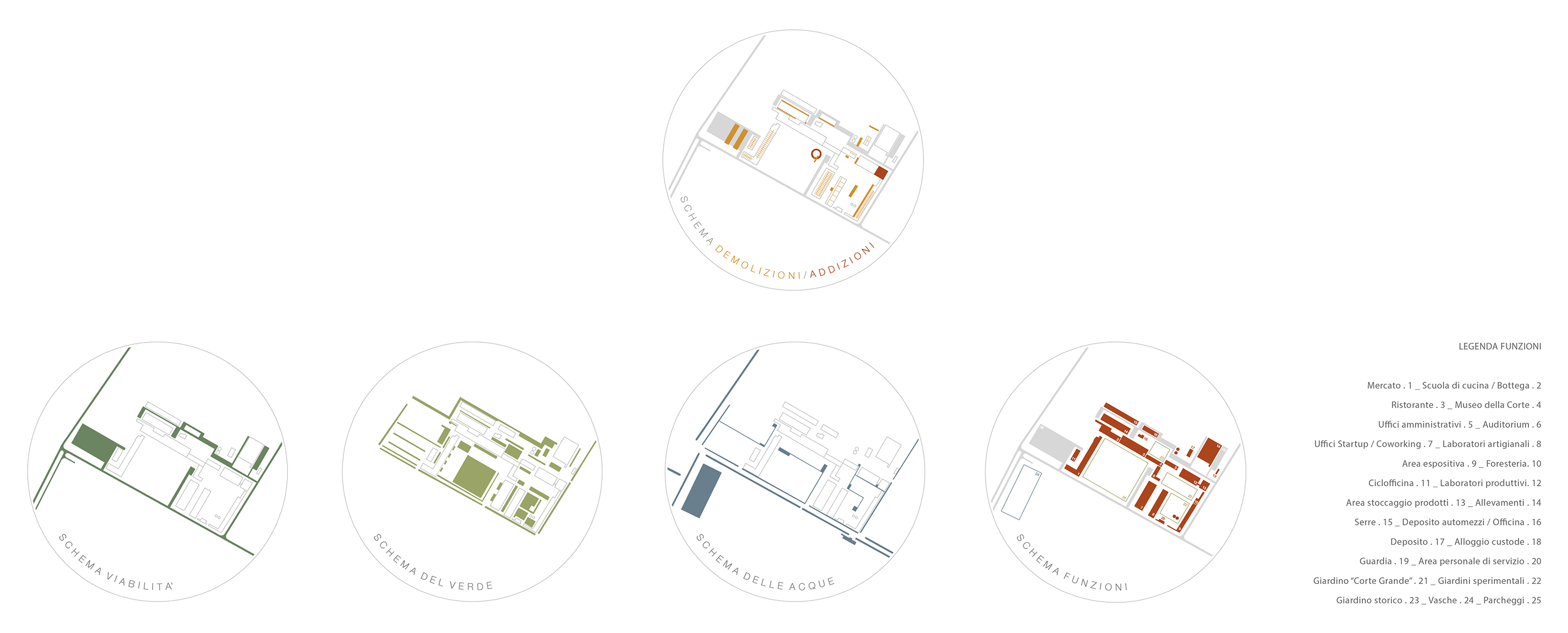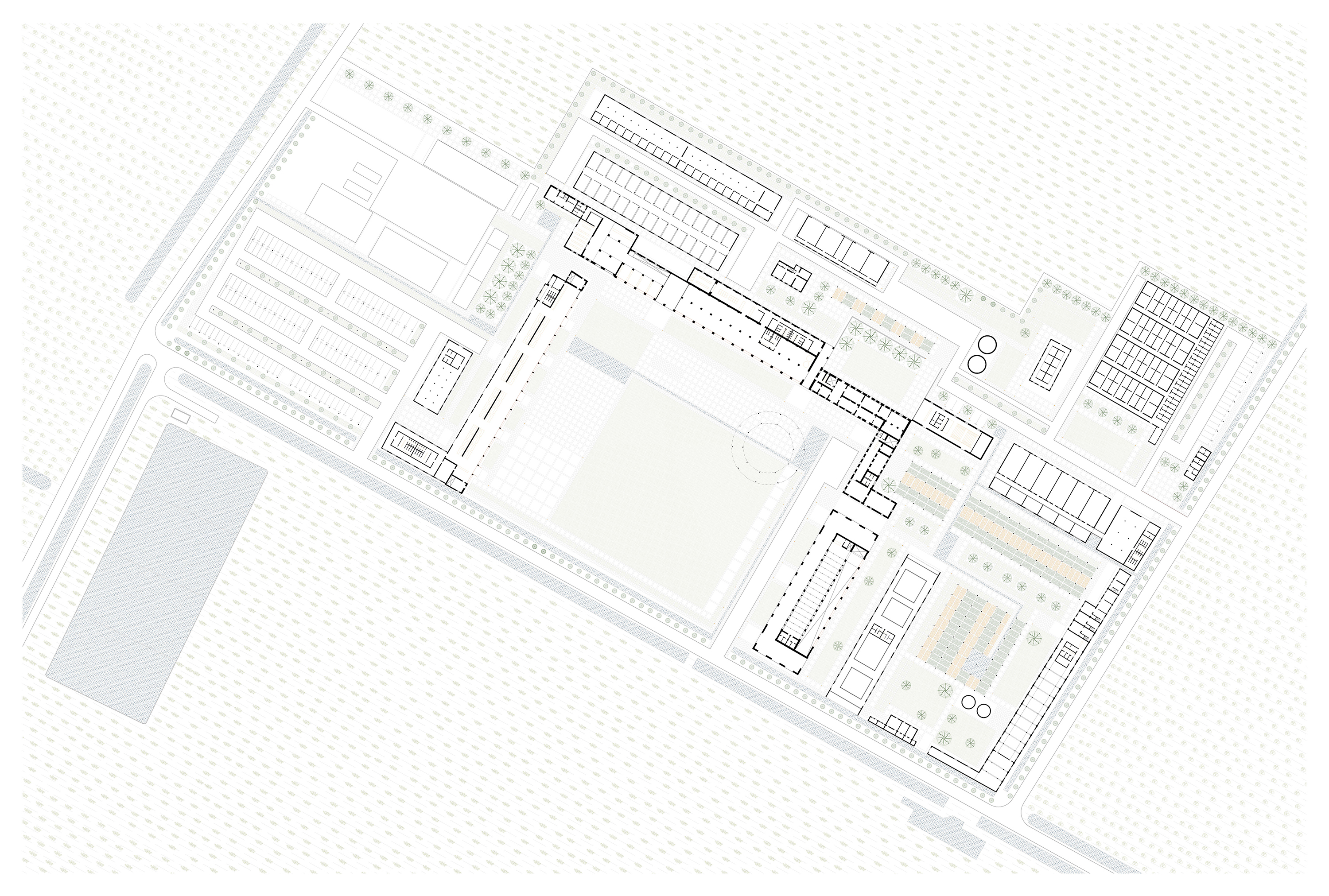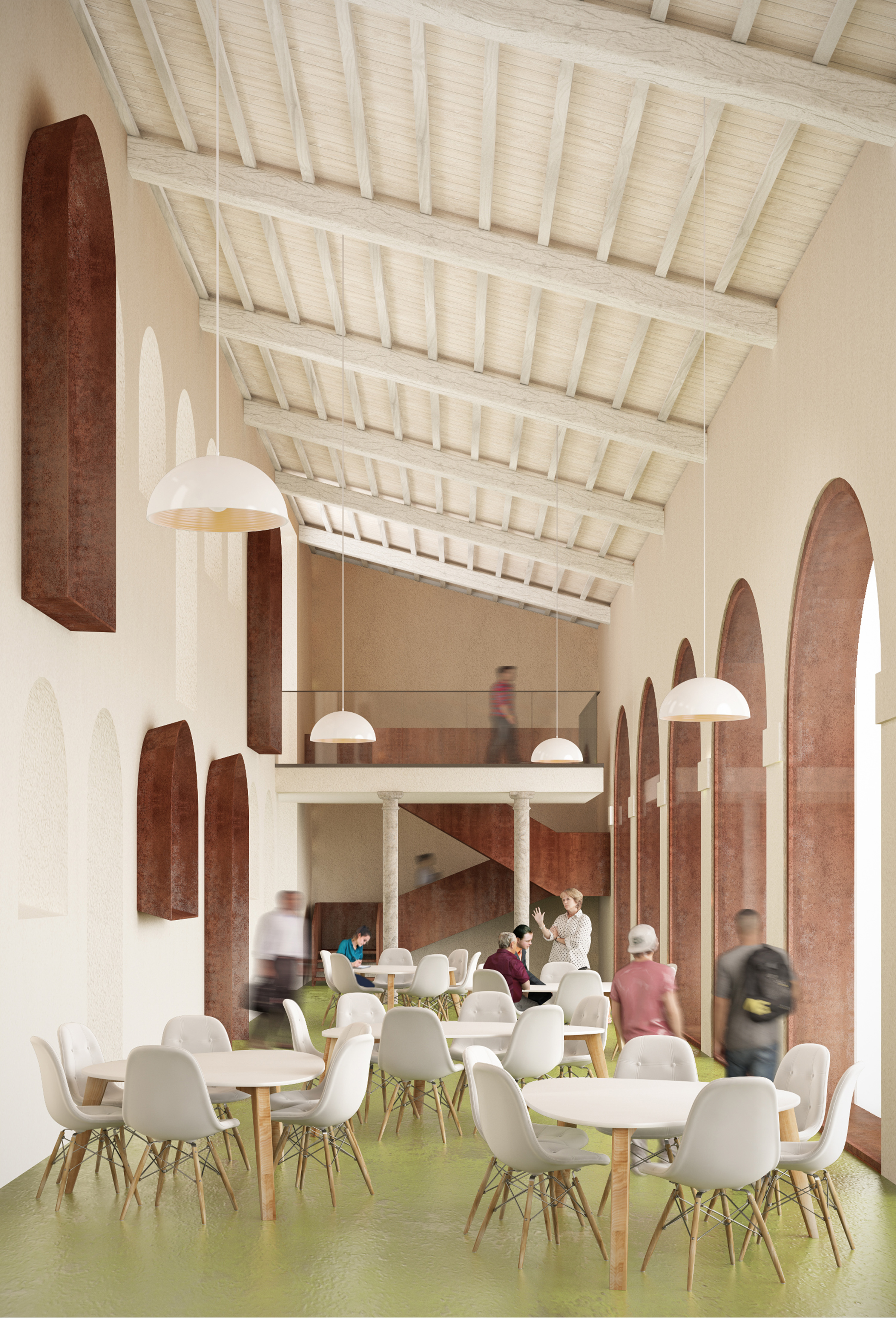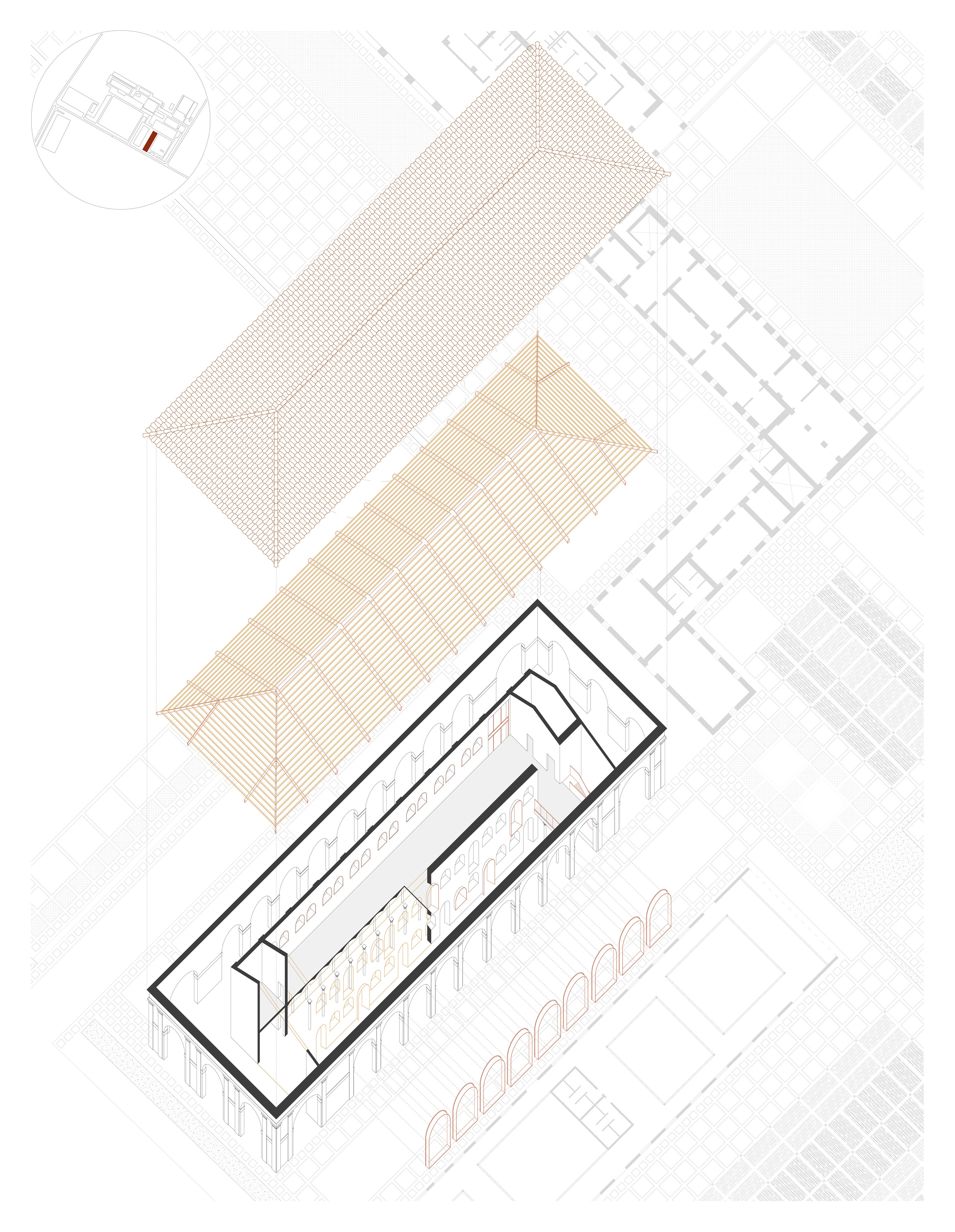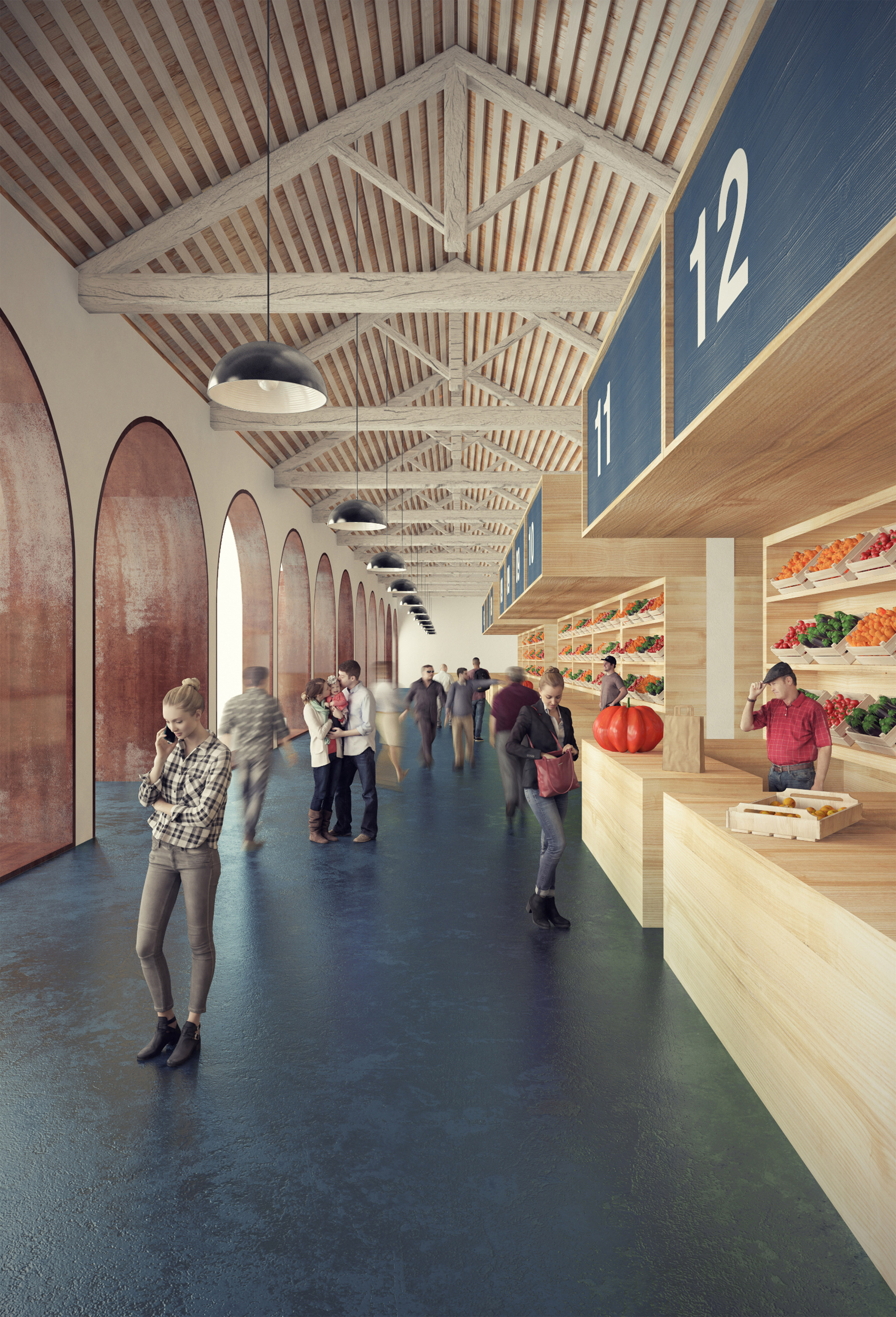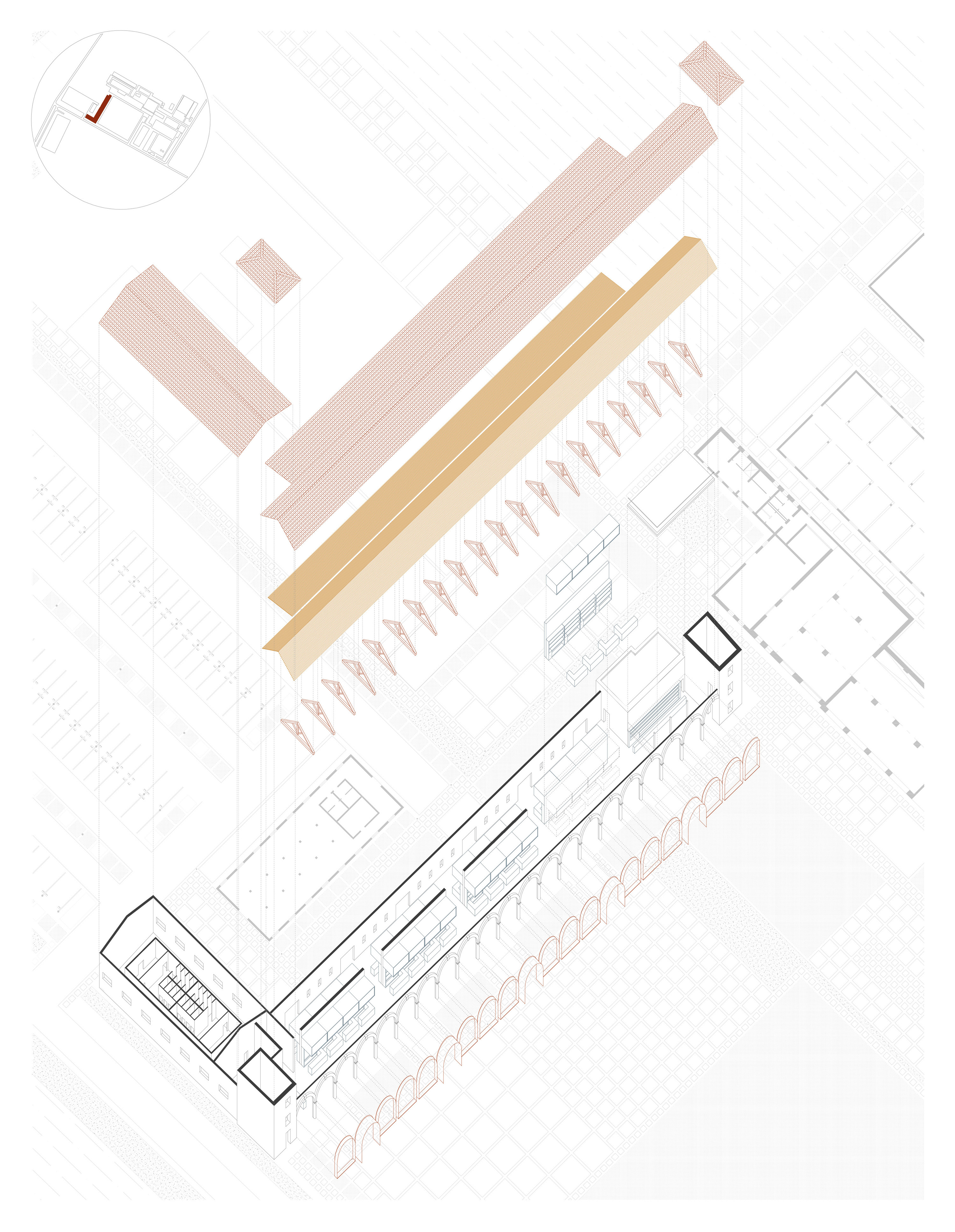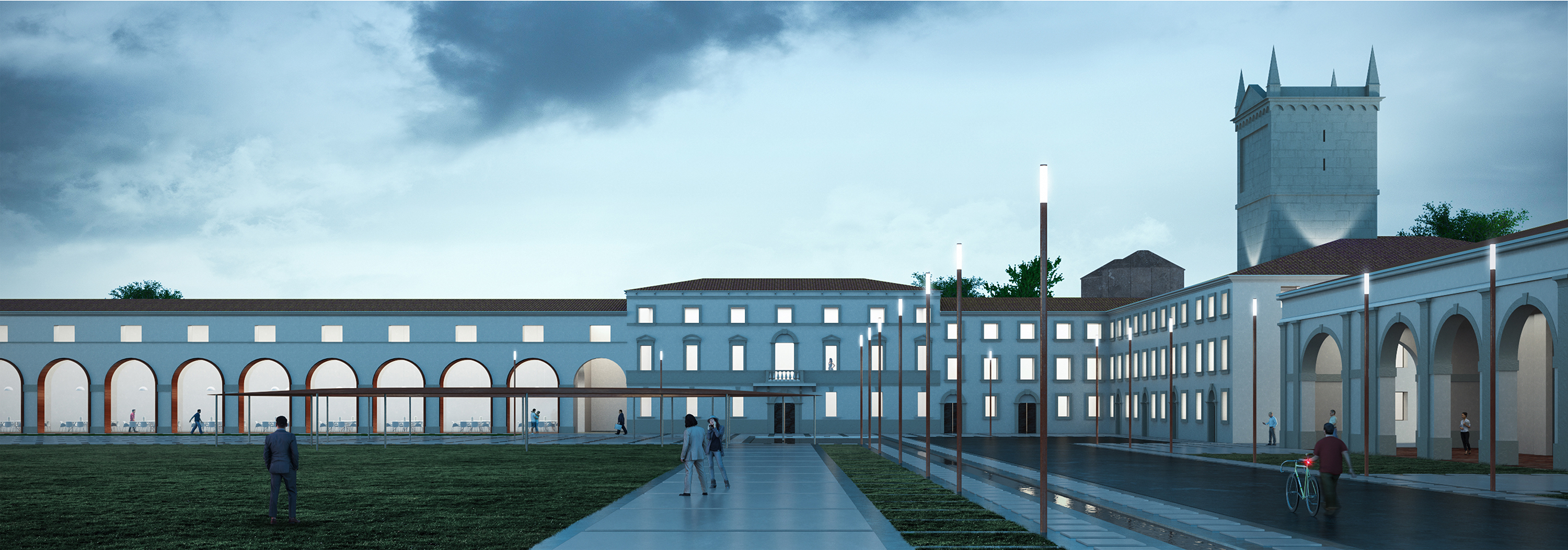ITA HONOR LABOR è il motto riportato nel fregio della famiglia Franchini proprietaria della tenuta tra l’800 e il ‘900. “HONOR LABOR” tradotto ”onore lavoro” descrive la linea guida ideologica con la quale si sviluppa la nuova identità legata a produzione, innovazione e alla territorialità della Corte Grande di Canedole, situata nel comune di Roverbella. Il complesso, attraverso un processo di rigenerazione e rifunzionalizzazione, è destinato a diventare un nuovo polo attrattivo e produttivo della provincia mantovana, favorendo lo sviluppo economico/culturale e l’integrazione sociale, nel rispetto dell’immagine storica del luogo. L’impianto, risalente tra il XVI e XVII secolo, è il risultato della stratificazione di storie e forme d’uso funzionali al governo della campagna. Attorno alla grande corte centrale si sviluppa un sistema di barchesse sul quale si innesta il Palazzo Centrale e la torre che svetta su tutta l’area. Una serie di edifici, dedicati per la maggior parte ad attività produttive, completa l’area d’intervento. Il lotto è inoltre perimetrato da canali d’irrigazione e alberature, che interessati da interventi di bonifica e ripiantumazione rigenerano l'ecosistema esistente. Si è scelto quindi di preservare l’immagine del complesso intervenendo sugli spazi interni, demolendo gli elementi accessori e le superfetazioni per creare ampi spazi in grado di ospitare le nuove funzioni e ad accogliere i nuovi flussi di utenze previste. L’apparato storico, restaurato con interventi di consolidamento e adeguamento strutturale ed impiantistico è stato quindi contaminato da innesti in acciaio corten, che ben si integrano col contesto rurale e valorizzano i caratteri architettonici, diventando il tema dell’intervento. L’area esterna è stata definita attraverso una griglia modulare che identifica le aree verdi e pavimentate, nella quale si innestano i canali d'acqua. Il grande spazio centrale della corte è stato lasciato libero da strutture permanenti preservando la spazialità del vuoto che connette gli edifici che si affacciano su essa, permettendo di ospitare installazioni temporanee e grandi eventi, che avranno come sfondo le strutture storiche e la campagna mantovana.
ENG HONOR LABOR is the motto shown in the frieze of the Franchini family, owner of the estate between the 19th and 20th centuries. "HONOR LABOR" translated "honor work" describes the ideological guideline with which the new identity linked to production, innovation and territoriality of the Corte Grande di Canedole, located in the municipality of Roverbella, is developed. The complex, through a process of regeneration and re-functionalization, is destined to become a new attractive and productive pole in the province of Mantua, promoting economic / cultural development and social integration, while respecting the historical image of the place. The facility, dating from between the 16th and 17th centuries, is the result of the stratification of stories and forms of use functional to the governance of the countryside. A system of barns develops around the large central courtyard on which the Central Palace and the tower that stands out over the whole area are grafted. A series of buildings, mostly dedicated to production activities, complete the intervention area. The lot is also surrounded by irrigation channels and trees, which, affected by reclamation and replanting, regenerate the existing ecosystem. It was therefore decided to preserve the image of the complex by intervening on the interior spaces, demolishing the accessory elements and the superfetations to create large spaces that can accommodate the new functions and accommodate the new flows of expected users. The historical apparatus, restored with interventions of consolidation and structural and plant engineering adaptation, was then contaminated by corten steel grafts, which integrate well with the rural context and enhance the architectural features, becoming the theme of the intervention. The external area was defined through a modular grid that identifies the green and paved areas, into which the water channels are inserted. The large central space of the courtyard has been left free from permanent structures, preserving the spatiality of the void that connects the buildings that overlook it, allowing temporary installations and large events to be hosted, which will have as a background the historical structures and the Mantuan countryside.
CREDITS
Name: Ex Cantine Sociali
Type: Cultural
Team: ISTMO Architecture, Massimiliano Cafagna, Sebastiano Marini
Site: Roverbella, Mantova, Italy
Year: 2018
ACHIEVEMENTS
Mar 2018 | La Corte Ideale (competition entry)
Powered by Cerea Banca 1897
Roverbella, Mantova, Italy
Jun 2019 | City - Brand & Tourism Landscape (exhibition)
International Symposium and Prize - Section B: Brand & Landscape
Powered by PAYSAGE/TOPSCAPE & CNAPPC
Teatro Agorà - Triennale di Milano, Milan, Italy
